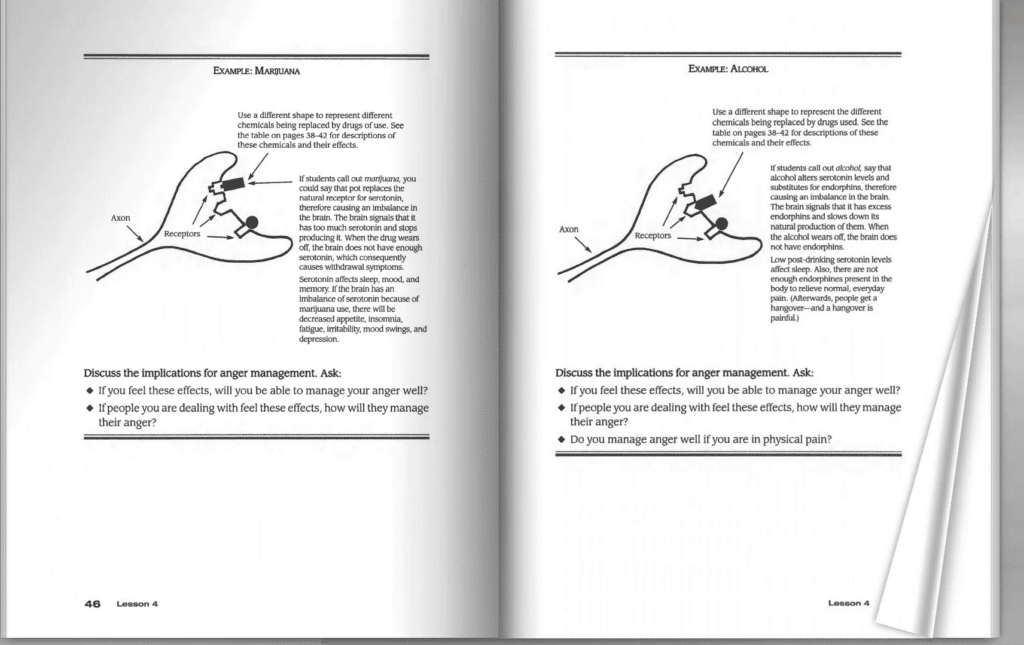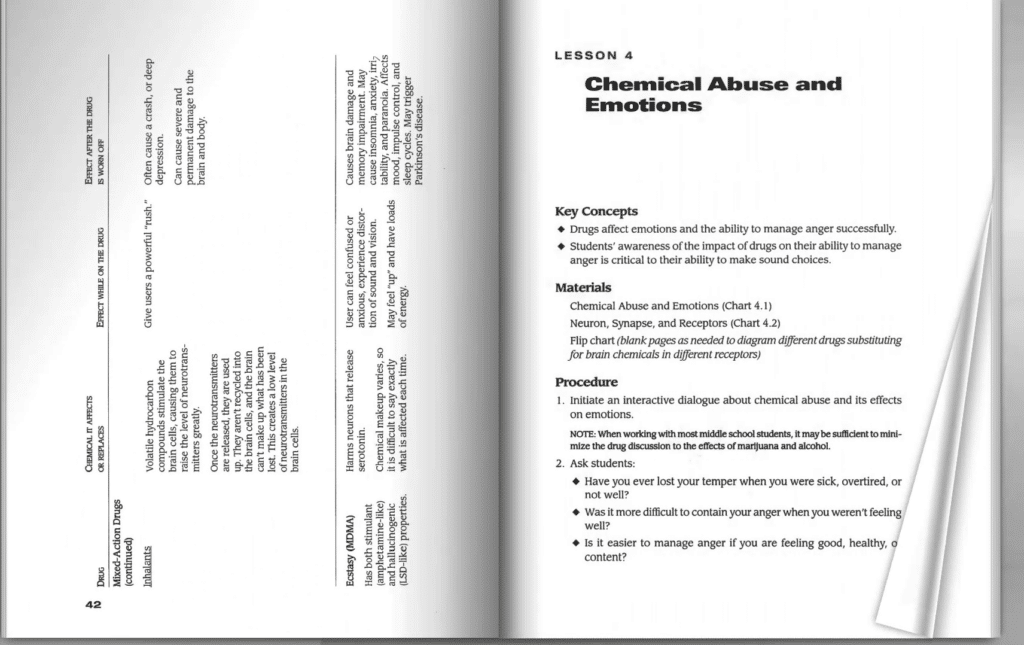When teaching students anger management skills, it is also important to help them understand the ways that drugs and alcohol can affect their ability to control their anger and other emotions and in general, as well as hinder their ability to manage anger.
Explain to students that the brain relies on chemical messengers called neurotransmitters to send messages to other parts of the body and enables us to express our emotions. Insufficient or out-of-balance neurotransmitters can produce mood swings, anxiety, and depression. Drugs and alcohol can play a major role in the imbalance of these important chemical messengers.
It is important for young people to understand that, when a drug is taken, it acts as an artificial neurotransmitter. When alcohol is consumed, for example, it substitutes for endorphins, the neurotransmitters that significantly affect mood, causing the brain to produce less of its own natural endorphins. Like alcohol, all drugs that replace neurotransmitters cause the brain to produce less of its own natural chemical messengers. This can have lasting effects on mood and other important brain processes long after the drug is used.
Talk with students about what kind of affects commonly-used drugs can have on their brains and their ability to control their anger and other emotions:

- Marijuana: Marijuana replaces the natural receptor for serotonin, a neurotransmitter responsible for aggressive behavior, sleep, and hunger, therefore causing an imbalance in the brain. The brain signals that it has too much serotonin and stops producing it. When the drug wears off, the brain does not have enough serotonin, which consequently causes withdrawal symptoms, such as insomnia, fatigue, depression, and mood swings. All of these could affect a young person’s ability to control their anger.
- Alcohol: Alcohol also alters serotonin levels and substitutes for endorphins, therefore causing an imbalance in the brain. The brain signals that it has excess endorphins and slows down its natural production of them. When alcohol wears off, the brain does not have enough endorphins to relieve normal, everyday pain. Students are less likely to deal with their anger responsibly when in pain or feeling sick.
- Cocaine: Cocaine releases excess dopamine, the neurotransmitter responsible for controlling moods and feelings of pleasure, into the brain. This blocks the gates where natural dopamine would enter a cell for up to 72 hours and causes some of the natural dopamine to be lost, thus damaging a person’s ability to feel pleasure. When the drug wears off, users are often unable to feel pleasure, happiness, or other emotions, and become severely depressed. This can significantly alter someone’s ability to control and express their emotions, including anger.

By teaching students about the ways that drugs and alcohol affect their ability to manage anger, we are equipping them with the knowledge they need to understand the chemical processes behind their emotions and the ways that artificial substances can affect them. And, most importantly, we give them one more reason to stay away from harmful drugs in the first place.
Click HERE for more information on Susan Fitzell’s Anger Management Curriculum for Teens!

